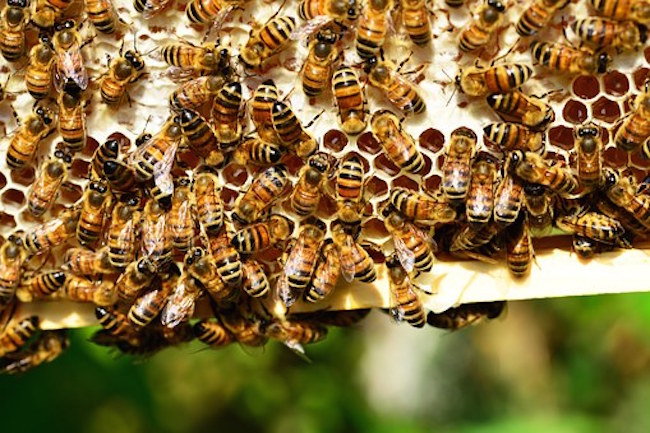FATHER-SON DUO HELP CREATE 51,000 NEW BEEHIVE COLONIES WITH AMAZING INVENTION John Vibes, Truth Theory for Waking Times
GNN Note – I wasn’t exactly sure how to categorize this article I just knew it needed to be shared!
******
In recent years, the world has finally begun to take notice of the drastically declining bee populations, and people are starting to understand the impact that this could have on the ecosystem. Slowly, people who care are working to correct this problem with some inventive solutions.
The father-son duo behind the “Flow Hive” took notice of this problem over ten years ago, and worked tirelessly to make their honey business more friendly to the bees.
After roughly a decade of research, Stuart and Cedar Anderson released an Indiegogo-funded invention called “Flow Hive.”
The idea behind their invention was to replicate a real beehive and harvest honey without causing any harm or posing any risk to the bees or their home.
Cedar Anderson is a third-generation beekeeper from Nimbin, Australia, and has been tinkering with beehives and the associated technology since he was a young child.
Cedar was inspired to create a harm free beehive after his brother was stung during the honey extraction process.
Eventually, once Cedar had a working prototype, he put a video online showing the prototype and explaining his idea, hoping to raise $70,000 for a tool that was needed for the factory.
However, much to the family’s surprise, the IndieGoGo campaign raised over $2 million dollars in one day, and would go on to be the most successful campaign in the website’s history, raising over $12 million in total.
In just a single day, the Anderson’s lives were changed forever, and they were left with the monumental task of shipping out 24,000 orders to over 130 countries.

However, instead of just retiring and enjoying their riches, the Andersons have donated their profits towards a network of pollination projects that are working to protect wild habitats.




